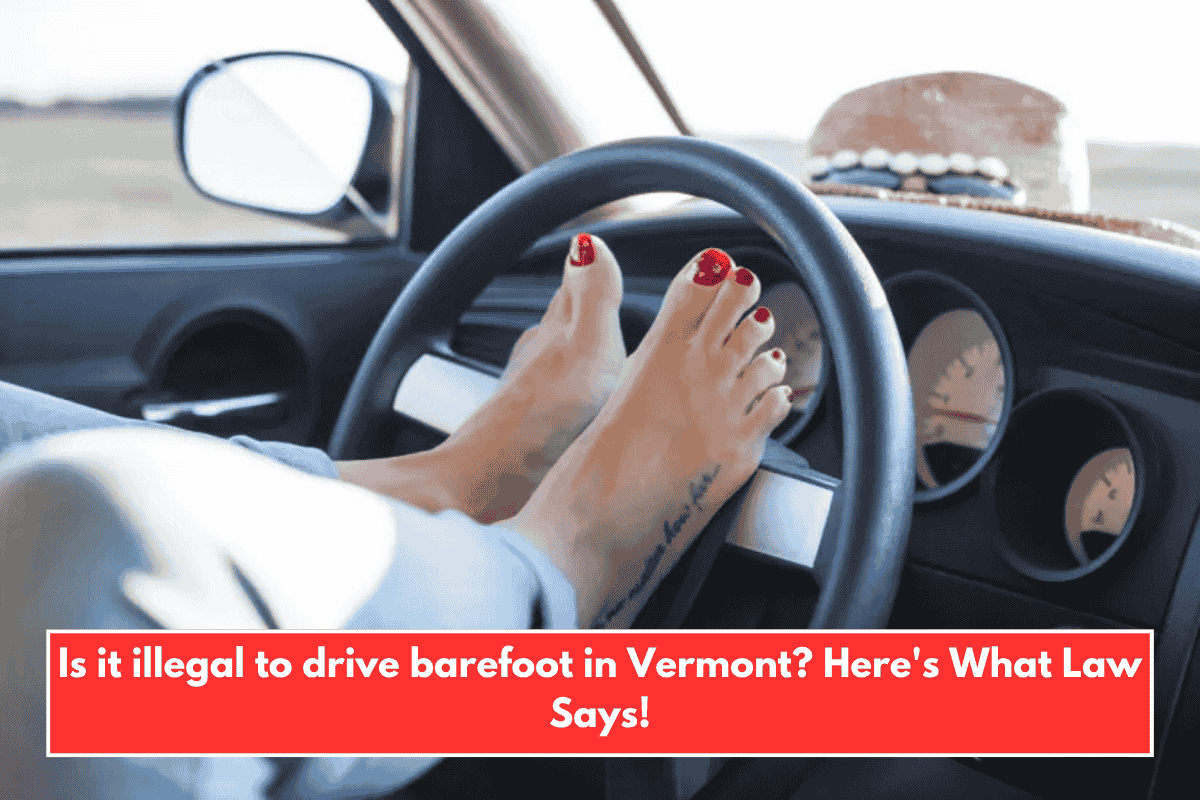Driving barefoot is a question many drivers have asked themselves, and while it’s a common belief that driving without shoes can lead to fines or legal issues, in Vermont, there is no law specifically prohibiting it. However, just because it’s not illegal doesn’t mean it’s always the safest or most responsible option. Let’s break down the law and the safety factors involved when driving barefoot in Vermont.
Vermont Law on Driving Barefoot
In Vermont, as in many other states, there is no law that explicitly forbids driving barefoot. The Vermont Vehicle Code does not mention anything about the requirement for footwear while operating a motor vehicle. Drivers are free to drive barefoot, and it won’t result in any fines or penalties solely for lacking shoes.
Safety Considerations for Driving Barefoot
While driving barefoot may not be against the law in Vermont, it can still pose safety risks. Here are a few reasons why driving barefoot might not be the best choice:
- Reduced Control: Without shoes, your feet may not have the same traction or control over the pedals, particularly in emergency situations where quick braking is required. Shoes provide better grip, allowing for more precise and controlled movements.
- Slippery Pedals: In certain weather conditions, your feet may slip off the pedals more easily when driving barefoot, especially if your feet are wet or sweaty. Shoes help to create better contact with the pedals, which can prevent accidents.
- Injury Risk: If you are in an accident or have to brake suddenly, your bare feet are exposed to injury. Shoes can protect your feet from injuries, such as cuts or bruises, that could result from stepping on sharp objects or even hitting the pedals too hard.
- Pedal Sensitivity: Some drivers feel they have more control over the pedals when barefoot, particularly when driving at low speeds or in relaxed traffic conditions. However, for most people, shoes provide a more balanced distribution of force and reduce the risk of over-pressuring the brake or gas pedals.
What Happens If You’re Involved in an Accident While Driving Barefoot?
If you are involved in an accident while driving barefoot, you might face legal consequences depending on the situation. For example, if a crash occurs and it is found that your lack of shoes contributed to the accident (for example, your feet slipped off the pedals or you couldn’t brake in time), you could be cited for negligent driving or even reckless driving, especially if the circumstances indicate your footwear choice impaired your ability to drive safely.
Though barefoot driving isn’t automatically illegal, being involved in an accident due to poor pedal control could lead to fines or points on your driving record, just like any other form of careless driving.
In Vermont, it is not illegal to drive barefoot, but it is important to consider safety. While driving without shoes may not be a criminal act, it can increase your chances of losing control of the vehicle or being injured in the event of an accident. If you choose to drive barefoot, be mindful of road conditions, your comfort, and always prioritize safe driving. When in doubt, it’s always safer to drive with shoes on.
SOURCES
[1] https://hirejared.com/injuries/is-it-illegal-to-drive-barefoot/
[2] https://1800lionlaw.com/is-it-illegal-to-drive-barefoot/
[3] https://www.thezebra.com/resources/driving/driving-barefoot/
[4] https://www.usatoday.com/story/news/nation/2025/02/15/is-it-illegal-to-drive-barefoot/77058161007/














